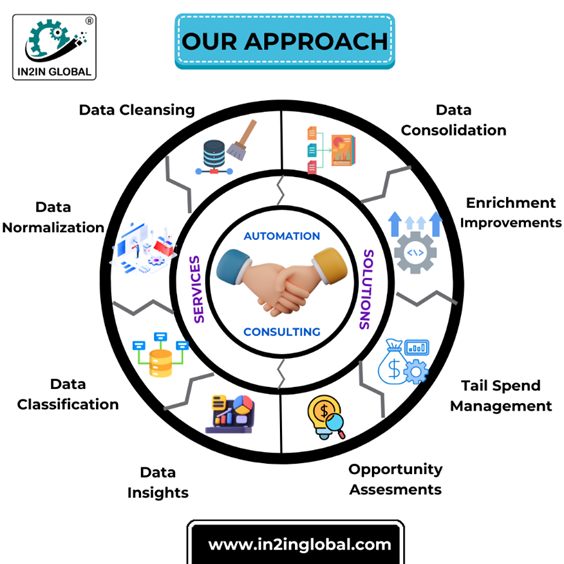Unlock the Secrets of E-commerce SEO: Dominate the Digital Marketplace
Introduction to E-commerce SEO
Welcome to the digital age, where Ecommerce SEO is the key
to unlocking success in the competitive online marketplace. In a world where consumers'
fingertips do the shopping, mastering the art of optimizing your ecommerce
website for search engines is no longer just an option – it's a necessity. Join
us as we delve into the secrets of Ecommerce SEO and discover how you can
dominate the digital landscape to grow your online business like never before.
The Importance of Ecommerce
In the world of ecommerce, standing out from the competition
is key to success. With millions of online stores vying for attention, having a
solid SEO strategy is crucial in ensuring that your products are visible to
potential customers.
Ecommerce SEO helps improve your website's ranking on search
engine results pages, making it easier for shoppers to find you when they
search for products you offer. By optimizing your site with relevant keywords
and high-quality content, you can attract organic traffic and drive more sales.
Moreover, investing in SEO for your ecommerce business not only increases visibility but also builds trust with consumers. When your website appears at the top of search results, users are more likely to perceive your brand as reputable and authoritative in its industry.
Tips for Optimizing Product Pages for Ecommerce SEO
·
When it comes to optimizing product pages for
SEO in the world of ecommerce, attention to detail is key. Start by conducting
keyword research to understand what terms your target audience is searching
for. Incorporate these keywords strategically in your page titles, meta
descriptions, and throughout your product descriptions.
·
Make sure your product images are high-quality
and optimized with descriptive file names and alt text. This not only improves
user experience but also helps search engines understand the content of your
pages. Pay attention to the loading speed of your product pages as well - a
slow website can negatively impact both user experience and SEO rankings.
·
Utilize structured data markup to provide search
engines with additional information about your products such as price,
availability, and reviews. This can enhance how your products appear in search
results, increasing visibility and click-through rates. Regularly monitor and
analyze the performance of your product pages using tools like Google Analytics
to make data-driven decisions for continuous optimization efforts.
Leveraging Social Media for Ecommerce SEO
·
Social media has become a powerful tool for enhancing
ecommerce SEO strategies. By leveraging platforms like Facebook, Instagram, and
Twitter, online businesses can boost their visibility and drive more traffic to
their websites. Engaging with followers through posts, stories, and interactive
content not only increases brand awareness but also improves search engine
rankings.
·
Sharing product updates, promotions, and
customer testimonials on social media can generate valuable backlinks to your
ecommerce site. Encouraging user-generated content such as reviews and photos
can further enhance your SEO efforts by adding fresh and relevant content that
search engines love. Additionally, using targeted hashtags and keywords in your
social media posts can help improve discoverability among potential customers
searching for products or services like yours.
·
Collaborating with influencers or industry
experts on social media campaigns can also amplify your reach and credibility
within your target market. By partnering with individuals who have a strong
following in your niche, you can tap into new audiences and drive quality
traffic to your ecommerce store. Remember to track the performance of your
social media activities using analytics tools to measure the impact on website
traffic, conversions, and overall, SEO success.
The Role of Keywords and Content in Ecommerce SEO
·
Keywords and content play a vital role in
Ecommerce SEO. When users search for products online, they use specific
keywords to find what they're looking for. By conducting thorough keyword
research, you can understand the language your potential customers are using
and optimize your website accordingly.
·
Integrating relevant keywords into product
descriptions, titles, and meta tags improves visibility on search engines.
Content that is informative, engaging, and rich in keywords not only attracts
visitors but also keeps them on your site longer - a crucial factor for SEO
success.
·
Quality content also helps establish credibility
with both users and search engines. By providing valuable information through
blogs, articles, or videos related to your products or industry, you can
position yourself as an authority in your niche.
·
Remember that while keywords are essential for
ranking well in search results, it's equally important to create content that
resonates with your audience. Balancing optimization techniques with
user-focused writing is key to driving organic traffic and conversions on your
Ecommerce site.
Tracking and Measuring Success with Ecommerce SEO
·
As you delve into the world of Ecommerce SEO,
tracking and measuring success is crucial for optimizing your online store's
performance. Utilizing tools like Google Analytics can provide valuable
insights into your website traffic, user behavior, and conversions. By
monitoring key metrics such as organic search traffic, bounce rates, and
conversion rates, you can identify areas for improvement and make data-driven
decisions to enhance your SEO strategy.
·
Setting up e-commerce tracking in Google
Analytics allows you to track specific actions on your site, such as purchases
or product views. This data enables you to understand the effectiveness of your
marketing campaigns and make adjustments accordingly. Additionally,
implementing UTM parameters in your URLs can help attribute traffic sources
accurately and gauge the success of different channels.
·
Regularly reviewing these analytics reports
gives you a comprehensive view of how well your Ecommerce SEO efforts are
performing. By analyzing trends over time and identifying patterns in user
behavior, you can refine your strategies to drive more targeted traffic and
increase sales. Tracking and measuring success with Ecommerce SEO is an ongoing
process that empowers you to adapt to changing market dynamics proactively.
Conclusion: The Power of Ecommerce SEO in Growing Your
Online Business
By implementing effective Ecommerce SEO strategies, you can
unlock the full potential of your online business. From optimizing product
pages to leveraging social media and creating valuable content, every step you
take towards improving your website's visibility will contribute to driving
more traffic and increasing conversions. Remember to track and measure your
progress consistently to understand what works best for your business.
Ecommerce SEO is not a one-time task but an ongoing process
that requires dedication and adaptability. By mastering the art of Ecommerce
SEO, you can dominate the digital marketplace, stand out from competitors, and
ultimately grow your online business exponentially. Embrace the power of
Ecommerce SEO today and watch as your online presence flourishes in the
ever-evolving world of e-commerce.




Comments
Post a Comment